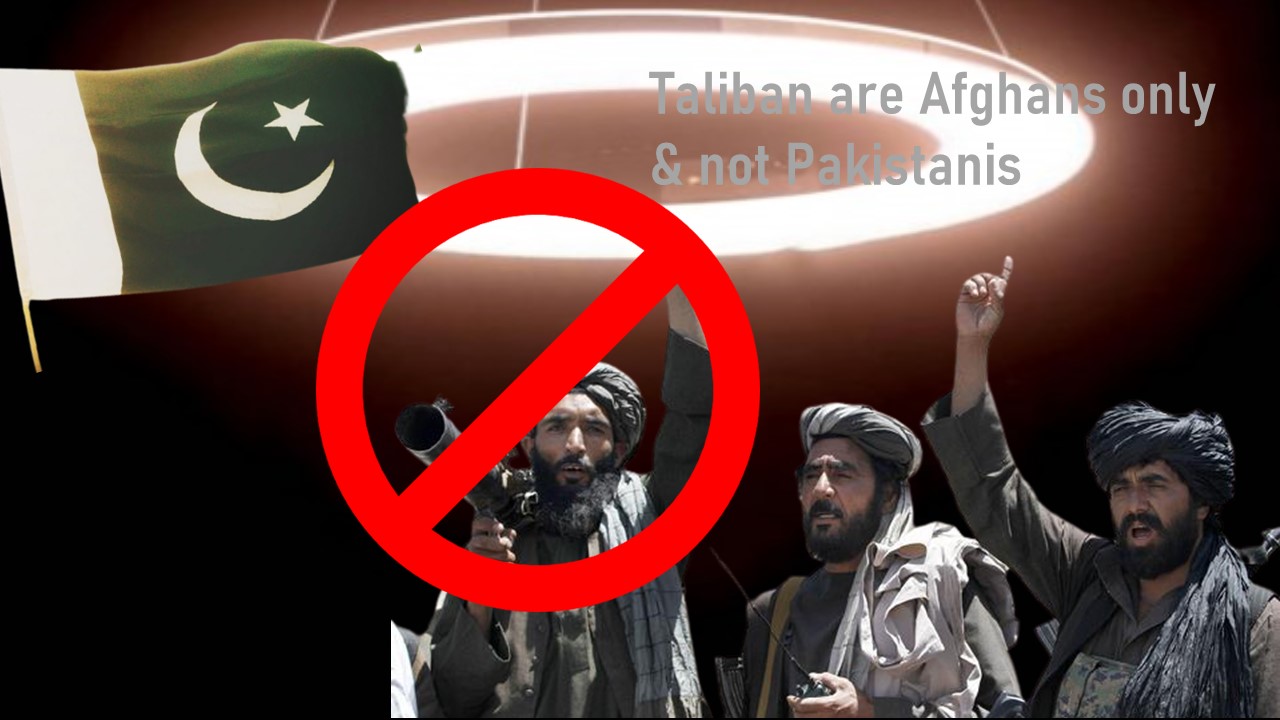Pakistan may have helped an incoming government in Afghanistan led by Taliban leader Mullah Omer with the help and support of other allies to avert a civil war in post-Soviet withdrawal in 1996.
However, Afghan Taliban are Afghans only and not Pakistani soldiers, and therefore, Pakistan does not control Taliban’s political or military decision-making in any sense.
However, western propaganda against Pakistan, somehow seems to be gaining ground once again.
This time it is in an effort to malign Pakistan with not exercising enough control over Afghan Taliban, perhaps to hide their defeat.
This lack of clear understanding about Afghans is the core issue that every super power of the time has failed to subjugate Afghanistan. Afghans are not Indians who would wilfully submit to Babars, Ghauris, Suris, and the British.
Let me once again outline certain aspects of Afghanistan’s history to make people understand the genetic make-up of an Afghan, so that they may reconsider the allegations against Pakistan of not doing enough.
Afghanistan is strategically located but least developed due to its history riddled with wars, conflicts, and crises.
Afghanistan is a land of brave people, though ethnically diverse, who do not like to be ruled by outside powers. However, the same was not understood by at least three world powers at different times and each had to suffer humiliating defeat to retreat.
According to Thomas T. Hammond, Afghanistan was used as a battlefield between British and the Russians in the 19th century also.
Russians, in their quest to secure their southern borders and have access to warm waters, and British to extend its Indian sub-continent rule towards north and west.
However, soon the two world powers of the time realized that the hardships due to mountainous terrain and the unreliability of the local support, decided to keep Afghanistan as a buffer state between the two empires.
Without going too far back in the invasion history of Afghanistan by the Russians and the British, one can conclude that Afghanistan’s strategic location became a curse for the Afghan people since the time immemorial.
However, the Soviet’s invasion of 1979 is considered responsible for the present mess that Afghanistan is going through for the last over four decades. In the process, Afghanistan stood destroyed, and Soviet Union collapsed as a Union.
Afghanistan, after the Soviet’s withdrawal in 1989, went through an equally damaging civil war during which Mujahedeen formed their own government under the banner of ‘Taliban’ with Mullah Omer as their leader.
Only three countries: Saudi Arab, United Arab Emirates, and Pakistan recognized their rule in Kabul.
The painful decade of the 1990s ended with the tragedy of September 11, 2001, attacks on the US, a new war in Afghanistan began with US and its allies on the other side this time.
However, this time Pakistan was also a target because it was supporting the US. Pakistan suffered immensely in this new war in Afghanistan for supporting the US and its allies.
While US and NATO continued military operations in Afghanistan, there was at least one political leader in Pakistan, Imran Khan, who repeatedly warned that there is no military solution to Afghan problem and Afghans would never stop fighting unless the foreign forces leave Afghanistan.
However, he was termed as ‘Taliban Khan’ and declared as a sympathizer of Taliban.
Khan also opposed US drone strikes on Pakistan’s territory and led procession towards the FATA areas in protest to US drone operations. Khan was also critical of US actions in which Bin Laden was killed in Abbottabad.
He was of the view that US did not take Pakistan into confidence and violated its territorial integrity and sovereignty by sending its armed helicopters and marines inside Pakistan to eliminate Bin laden. Khan is now Prime Minster of Pakistan since August 2018.
Finally, US President Donald Trump wrote a letter to Pakistan’s PM Khan, requesting help to resolve Afghan crisis and assist US in exiting from Afghanistan without much trouble.
PM Khan assured President Trump of Pakistan’s fullest support in the process and managed to get all stakeholders on the negotiating table.
US-Taliban signed a landmark Agreement on February 29, 2020, in Doha-Qatar, and US agreed to withdraw all its troops from Afghanistan by May 1, 2021, however, new Biden Administration needed some time and promised to leave Afghanistan by September 11, 2021.
Afghanistan needs a break from wars, and conflicts. The world must understand that Afghans do not like to be ruled or take dictations from any outside entity, no matter who has done what for them.
Taliban spokesperson Suhail Shaheen in his interview on 12 July 2021, has categorically stated that Pakistan ‘cannot dictate to us,’ and Pakistan knows this more than any other country and that is one reason it has never sent an armed soldier or a fighter jet in the Afghan territory for military operations.
Therefore, it is important to understand Pakistan’s position that it does not have any leverage over Taliban, and cannot influence their politico-military decision-making at any level.
Dr Zia Ul Haque Shamsi is the author of the book ‘Nuclear Deterrence and Conflict Management Between India and Pakistan.’ This article was first published in Pakistan Observer. He is presently working as Director, Centre for Aerospace & Security Studies (CASS).
Photo Credit: Etfa Khurshid Mirza




